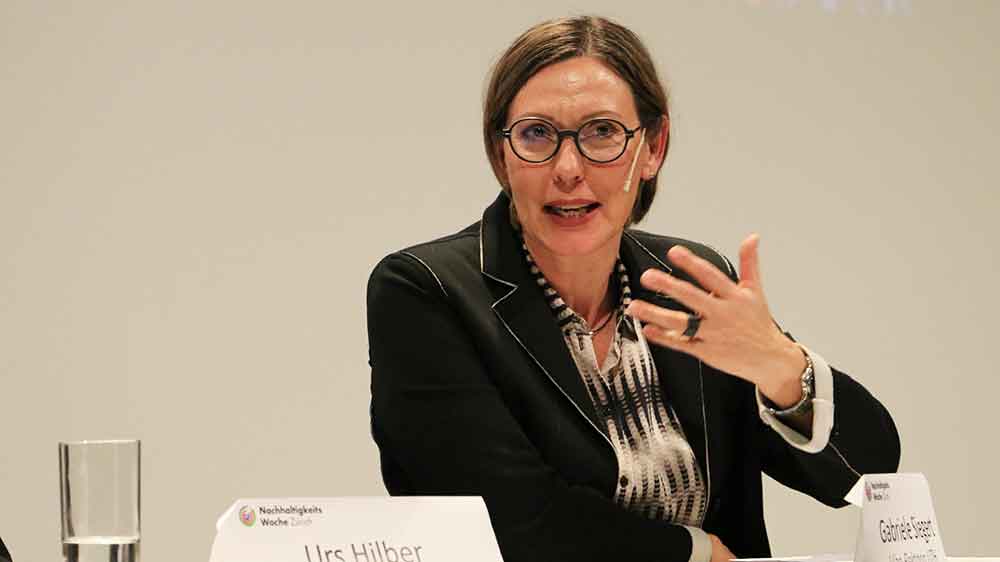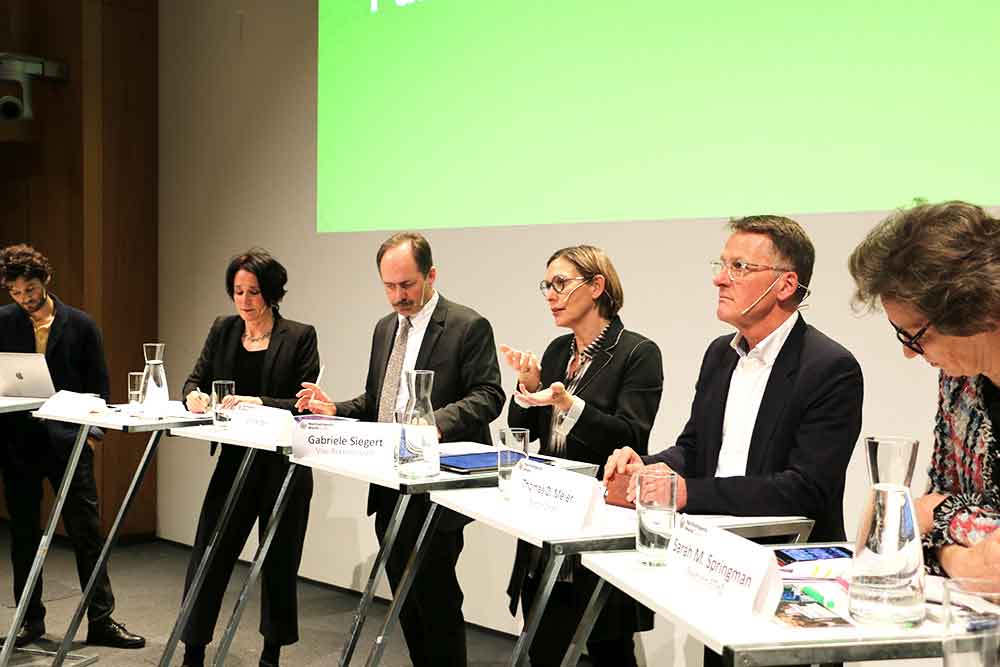“2019 is the University of Zurich’s year of sustainability”
Universities have a central role to play in promoting sustainable development goals – on that point the student organizers of the Zurich Sustainability Week (see box) are in unanimous agreement. But do the leaders of the five Zurich higher education institutions see it the same way? And what specifically are their establishments doing for sustainable development? These were the questions posed to five leaders from UZH, ETH, PHZH, ZHAW and ZHdK during a panel discussion at ETH Zurich under the title “Call for Action – Universities in the Key Role for Sustainable Development?”
Committed to sustainability
At last year’s sustainability week panel discussion the representatives of the five Zurich higher education institutions had given their establishments a pretty poor appraisal for their commitment to sustainable development. The University of Zurich had given itself a particularly low score compared to the others, awarding itself only five out of ten. This year, however, UZH Deputy President Gabriele Siegert was able to show that the university was making strides forward in this area. “2019 is all about sustainability at the University of Zurich,” said Siegert in summarizing the current status of development at the university. The Executive Board of the University had recently signed off on the sustainability report for the year 2018, the first year the university had produced such a report, and had also approved a new Sustainability Policy. Now implementation strategies for the policy at the levels of both university administration and teaching and research would be put out for consultation, said Siegert.
In this year’s self-assessment round, Siegert still only gave the University of Zurich six points, however, saying that sustainable development required behavioral changes that took time to bring about. But “a consultation process can kick-start cultural change,” said Siegert optimistically.
Invitation to students
Chair Karin Landolt also presented Gabriele Siegert with points made by students, who complained that subjects such as environmental psychology, philosophy and sociology were not currently offered at the University of Zurich. Siegert referred to the new quality assurance meetings on teaching and invited students to be more active in using these opportunities to introduce their suggestions for more courses relating to sustainability. She also pointed out that a lot of things that would actually come under the umbrella of sustainability were not labeled as such in the past, for example courses on poverty or subjects such as gender equality and diversity. In addition she made it clear that sustainability was not the main aspect to be taken into account when designing courses or appointing professors.
Internationalization versus sustainability
In addition to the integration of sustainability topics in teaching, the ecological footprint of universities was also hotly debated, in particular with regard to air travel of employees and students. Sarah Springman, rector of ETH Zurich, reported on a program of internal monitoring of ETH members’ air travel and said that whenever possible she personally held digital meetings instead of traveling by plane. “I used to have a silver card with Swiss, now it’s a blue one,” she joked. She also encouraged others to think carefully about taking flights in connection with academic duties and where possible to travel by train.
Thomas Meier, rector of ZHdK, agreed that there was an inevitable conflict between research and teaching interests and sustainability goals. He admitted that the increase in international collaboration which ZHdK was aiming for stood in contradiction to the sustainability goals. But he stressed the importance of digital exchange as a way of combining the two aims.
Student initiative
In addition to university leaders, representatives from politics, industry and NGOs spoke at the event. Over the course of the evening it became clear that many initiatives in the area of sustainable development at universities came from the students. Examples cited were the environmentally friendly and socially responsible menus in the cafeterias and the sustainability week itself, which was organized by students. In response to vehement demands from the floor for more commitment from universities, Springman turned the tables and called for more commitment from the students – there was a reasonable audience in attendance, but the room wasn’t full.

